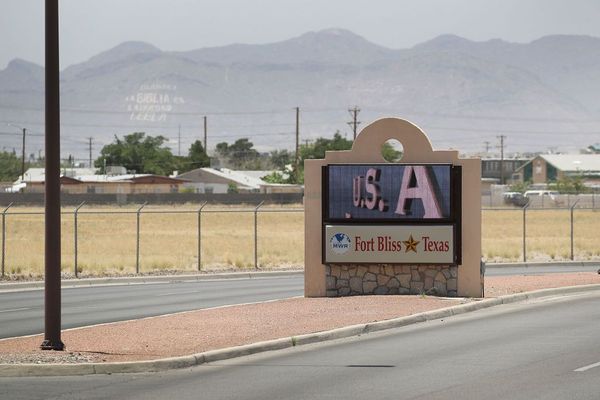
On the southern shores of the Niagara River, a few hundred feet from the thundering falls, sits Marineland of Canada – an amusement park, zoo, aquarium and forest occupying nearly 1,000 acres of land (400 hectares). Over the years, millions of people have clamoured to view the park’s 4,000 animals, including its prized walruses, orcas, dolphins and belugas.
But over the past few years, the park has taken a decidedly dark turn as there has been a string of deaths among the world’s largest captive beluga population. Last year, five belugas died at the facility bringing the total number of whales and dolphins to die there since 2019 to more than 20.
News of the latest death in November last year prompted an outcry from the province’s politicians, including the New Democrat leader, Marit Stiles, who called the outcome “disgraceful” and threatened to shut down the park if elected premier.
Those who manage the park, home to the last captive whales in Canada, have repeatedly defended its treatment of the belugas and the standard of the facilities, arguing that the string of deaths reflects the “circle of life”.
But views about marine parks appear to be changing. Covertly filmed footage of whales and dolphins in captivity has shifted public opinion against them, some activists believe. This month a French marine park, also called Marineland, closed down. Visitor numbers had fallen from a peak of 1.2 million a year to just 425,000 over the past decade.
Many activists see an increasingly sceptical public as a vindication of their decades-long fight to end the captivity of large marine mammals, and some have seized on the recent deaths at Marineland in Ontario to redouble their efforts.
“People are waking up to the fact that … putting [a whale] in a glass jar is just about as cruel as it gets,” says Phil Demers, who worked for 12 years as a senior trainer at Canada’s Marineland.
In 2023, the last remaining orca, Kiska, died at the marine park and since then activists have focused on the world’s largest captive beluga population. Thirty-one of the animals remain at Marineland.
Demers believes that because the park faces an uncertain future, the animals may need to be relocated. “As it stands, there are no viable sanctuaries and nothing that’s realistically on the horizon,” he claims.
For years, Canadian media outlets have investigated the park and journalists probing beluga deaths say it is impossible to get a clear sense of why so many whales have died in such a short period of time. They claim to have been stymied by numerous roadblocks, including the newly formed Animal Welfare Services (AWS), the province’s investigative body, which has become a “black box” when it comes to sharing information with the public, says Liam Casey, a reporter with the Canadian Press. “The province says it won’t talk over fears of screwing up their investigations,” he claims.
AWS opened an investigation into Marineland in 2020 and in the following year, as part of its investigation into the park, it declared that all marine mammals in the park were in distress due to poor water quality and ordered Marineland to fix the issue. Marineland appealed against the order and denied the animals were in distress, but the aquarium later dropped its appeal and brought the water up to standard.
Then in a rare interview, published last month, the head of AWS, Melanie Milczynski, told the Canadian Press that the marine mammal deaths at Marineland did not appear to be related to water problems. She also said provincial inspectors had visited the park more than 200 times since 2020. Recognising that much of the confusion around what was happening at Marineland was being fuelled by AWS’s silence, she also said: “We’re looking to be a little bit more proactive in telling our story and sharing the work that we do.”
The Guardian requested interviews with both Milczynski and Ontario’s solicitor general, whose department is responsible for animal welfare across the province, but did not receive a response. Marineland did not reply to a request for comment on the inspections.
Asked to comment on the beluga deaths, Marineland said the whales “receive far better healthcare and around-the-clock attention than any human in the UK, or anywhere else”, and that the park, which was inspected “dozens” of times a year, had specialists that “care for the animals when they are sick and every effort to save them is made”.
Marineland said that for decades, “animal rights activist have sought to equate any animal death with alleged ‘abuse’ by the facility caring for the animals” which was “effective as propaganda” for those groups to fundraise.
“There are dozens of whales at Marineland of various ages and individual conditions. Whales, like humans and even family pets, die of natural causes all the time … Alleging some kind of ‘problem’ without any facts whatsoever simply because whales have died is expected and predictable as propaganda, but it is not ‘reporting’.”
In response to the company’s statement that readers would be left “misinformed and uninformed”, the Guardian requested a tour of the facility, which is still closed for the season. The company did not respond to the request.
The park’s future operations have been clouded by a federal law passed in 2019 and a provincial law passed in 2015 that ban the sale, breeding and captivity of whales. The effect of the ban means that while Marineland’s existing cetacean population can remain at the park, no new whales can be acquired.
The deaths of its founder, John Holer, in 2018 and his wife, Marie, in 2024 have also cast the park’s operations into uncertainty. While it opened last year to the public, its operating season was shortened, fewer rides were open and some animal exhibits were shut. Management of the park has said publicly it is actively looking for a buyer.
“I really believe the laws passed against whale captivity, both at the federal level and by the province of Ontario, are a direct result of the public seeing whales at places like Marineland,” says Camille Labchuk, a lawyer and director at Animal Justice Canada. “But despite these laws being passed, very little has actually changed on the ground. There aren’t many options for [these belugas].”







